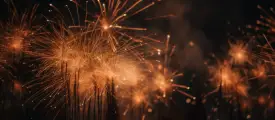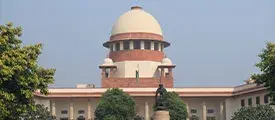Trademarks in Russia
Legal protection of trademarks in Russia is governed by the relevant provisions of Part 4 of the Civil Code 2008 (the latest amendments to which were enacted on July 4, 2016). The Civil Code also provides the basics for registration procedures, which are developed in detail in the administrative regulations of the Russian Trademark Office (Rospatent).
Trademark Law in Russia
Legal protection of trademarks in Russia is governed by the relevant provisions of Part 4 of the Civil Code 2008 (the latest amendments to which were enacted on July 4 2016). The Civil Code also provides the basics for registration procedures, which are developed in detail in the administrative regulations of the Russian Trademark Office (Rospatent).
Trademark Registration in Russia
Applicants for trademarks can be legal entities (including commercial or non-profit and private or state entities) and individual entrepreneurs (natural persons holding a state license or otherwise allowed by local law to conduct business activities).
Applicants residing abroad must communicate with Rospatent through a Russian trademark attorney (with certain exceptions for applicants residing in countries that have international treaties with Russia concerning national regimes for their applicants). Local applicants can file directly with Rospatent.
The law requires that a representative (including trademark attorneys) have a power of attorney to sign, file and prosecute a trademark application.
Trademarks registrable in Russia
The law provides an open list of designations that can be registered as trademarks, including words, images, sounds, three-dimensional shapes, animations, holograms, position marks, colours (including single colours) and smells.
Trademarks not registrable in Russia
The following designations cannot be registered as trademarks in Russia:
- commonly used names of particular goods;
- commonly accepted symbols and terms (eg, the Red Cross), state symbols and flags and the names of state bodies and international organisations;
- characteristics of goods, such as indication type, quality, features, purpose, value and the time, place and method of manufacture and sale;
- simple shapes of goods that are determined by the purpose of the goods;
- names of cultural heritage sites and objects;
- appellations of origin;
- false and misleading designations; and
- designations that violate public interest, moral or humanitarian principles.
- With the exception of the last two examples, these designations can be included in a trademark as non-protected elements under certain conditions (eg, consent of the competent authority, evidence of acquired distinctiveness through intensive use, domination of other elements in the trademark).
Trademark Registration Procedure in Russia
Examination
Rospatent conducts a formal and substantive examination of trademark applications. It usually takes 12 to 14 months to complete the examination, if no official actions are issued.
Rospatent’s examination includes the following checks:
- whether the application papers have been correctly drafted and submitted;
- whether the goods and services have been correctly classified and named;
- whether the filing and examination fees have been duly paid;
- whether the mark cannot be registered on absolute grounds; and
- whether the mark is confusingly similar to any registered trademarks or pending applications with an earlier filing or priority date.
If the application fails on one or some of these grounds, the Trademark Office will issue an official action indicating the application’s defects or citing grounds for possible refusal of registration. Depending on the nature of the official action, the applicant is given two, three or six months to respond.
If earlier trademarks are cited against the filed mark in the official action, the applicant may overcome the citations by providing letters of consent from the owners of the cited trademarks, unless those marks are identical or similar to the extent that they could mislead consumers.
Opposition
There is no opposition procedure in Russia.
However, the law allows third parties to file written observations against an application that is under examination by Rospatent. The Rospatent examiner will take these arguments into account during the examination of the application.
Appeals
Refusals of the examiner can be appealed to Rospatent within four months of refusal. Appeals are heard by special boards of examiners and the final decision must be approved by the head of Rospatent. It usually takes four to six months for an appeal to be prosecuted and decided.
Registration
On issuance of a decision in favour of registration, the applicant must pay the registration fee within four months of the decision date, although an additional six-month grace period is available (subject to a 50% increase in the registration fee). The registration fee does not depend on the type of mark or number of classes.
The registered trademark is then entered in the State Trademark Register and published in the Official Bulletin (available online), and a paper trademark certificate is issued.
Trademark Renewal in Russia
The registered trademark is valid for 10 years from the filing date of the trademark application; this term can be renewed for an unlimited number of subsequent 10-year periods. The renewal petition and official fee should be submitted during the last year of validity of the trademark, although an additional six-month grace period is available (subject to a 50% increase in the official fee).
Trademark Search in Russia
An agency of Rospatent offers trademark searches to all interested parties. Although these searches are often referred to as ‘official’, in fact the results of these searches do not bind Rospatent or other parties.
Search options include word mark search and image mark search, covering all registered trademarks and pending trademark applications.








